At the age of 79, British filmmaker Ken Loach has delivered one of his warmest and most appealing films with Jimmy’s Hall — but it’s also a film that shows that time has not dimmed his leftist political passion. If this is, as Loach has indicated, to be his last film, it’s an excellent final bow. Based on areal events, the film is no more and no less factual than any film of its type. It is, however, interesting to see that a little-known story that ends around 1932 is still capable of stirring up a controversy as to how closely it hews to the facts — or doesn’t. This debate mostly concerns the choice of downplaying the main character’s real life communism and political activism in favor of making him more a straight-up populist hero. The truth behind these objections, I suspect, has much to do with the fact of how relevant the film is to today — with its depiction of a society where the top 1 percent owns and controls most everything. Lines like these are impossible not to connect to today: “Do you think they give a damn about our old, the sick, the unemployed, the hungry, the homeless and those forced to leave our shores desperate for work? I saw the ’20s in New York, with my own eyes, and the wild speculation and greed that infected everyone. And then I saw the bubble burst. The crash of ’29 and misery in a land of plenty. Let’s not forget how it spread ’round the world, from a system steeped in illusion, exploitation and avarice.”
The story concerns Jimmy Gralton (Barry Ward) returning to County Leitrim, Ireland, in 1932 following a 10-year stint in America — a stint not entirely of his own choosing, as becomes apparent from the mixed reactions to his reappearance. Particularly displeased to see Jimmy is Father Sheridan (Jim Norton), who fears that his return will bring trouble — trouble of the kind that occurred 10 years earlier. That trouble all centers on the “Jimmy’s Hall” of the title, which is in fact a community center named Pearse-Connolly Hall, built on Jimmy’s land and mostly with Jimmy’s money. It has stood empty since his departure and was largely the cause of his departure, since the Church and the rich landowners saw it as a threat to their power. For the regular locals, Jimmy’s return marks the possibility of the hall — with its dances and poetry readings and art lessons — reopening. The very thing the Powers That Be do not want, but the very thing they will get.
This is the crux of the drama — Jimmy and the people vs. the authorities. (And, yes, it bears certain similarities to Footloose, which are probably coincidental.) But there’s more to the film. There’s also the story of Jimmy and Oonagh (Simone Kirby), the girl he left behind, who is now married to someone else, but the past isn’t quite dead to either of them. This is evidenced in a late night dance — and implicit tryst — which is perhaps the most romantic scene in anything Loach has ever made.
In addition, the film — though hardly sympathetic to religion — is also about the conflict between the stodgy (if not downright silly) beliefs of Father Sheridan and the more progressive views of the younger Father Seamus (Andrew Scott), who is mostly amused by his elder’s concerns over sinful dancing (with its pelvic thrusts) to that pagan American music that Jimmy brought back with him. (“That’s a black woman singing,” Sheridan notes of a Bessie Smith record Jimmy had the “cheek” to send him.) The amusement is short-lived when Seamus realizes the conflict is all about Jimmy’s Marxist politics and Sheridan’s fear of losing control — and the lengths to which the older man is willing to go.
Make no mistake, Loach is not out to make a carefully nuanced, even-handed account of the events. There’s never any doubt whose side Loach is on, nor that he finds the oppressing forces both foolish and dangerous. That he presents two sides of the church’s view and even presents Sheridan as ultimately something more than a cartoonish villain is, however, a testament to Loach’s humanist views. (And, if we’re honest, it also makes for better, more effective and more appealing drama.) In the end, Jimmy’s Hall succeeds not because it’s a highly-charged political film and not because it’s remarkably pertinent to our own time, but because it’s a warmly effective human drama of a kind we rarely see — the kind that doesn’t bog down in treacly goo. Rated PG-13 for language and a scene of violence.
Starts Friday at Carolina Cinemas.



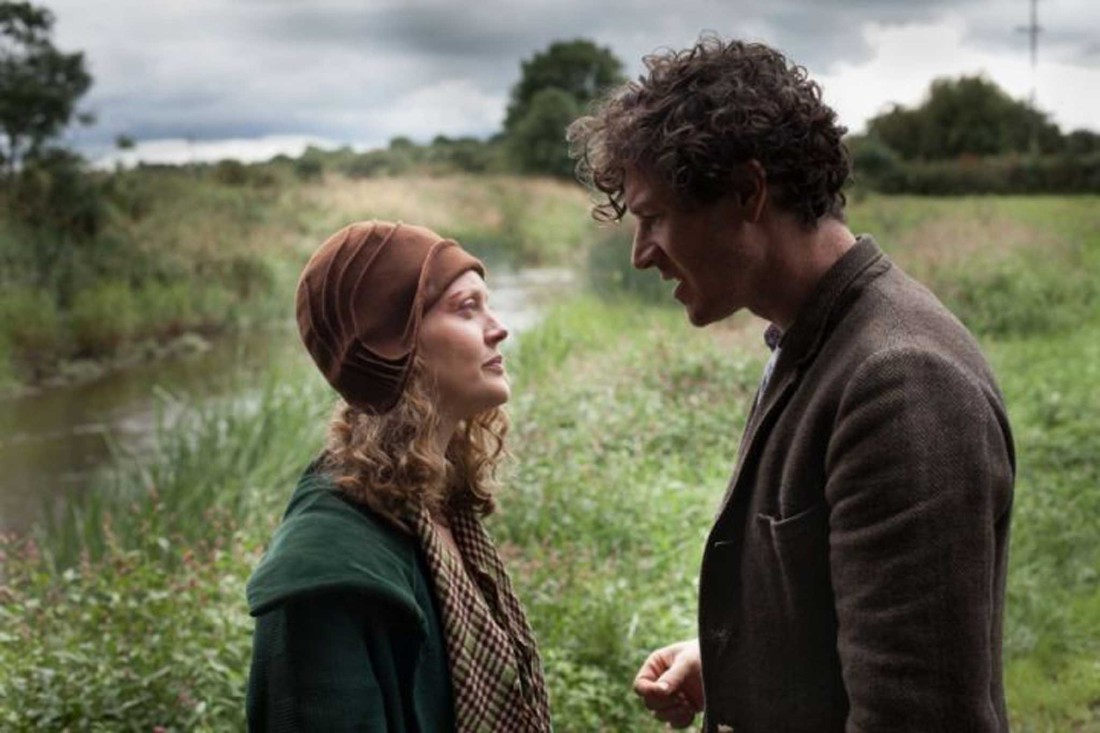
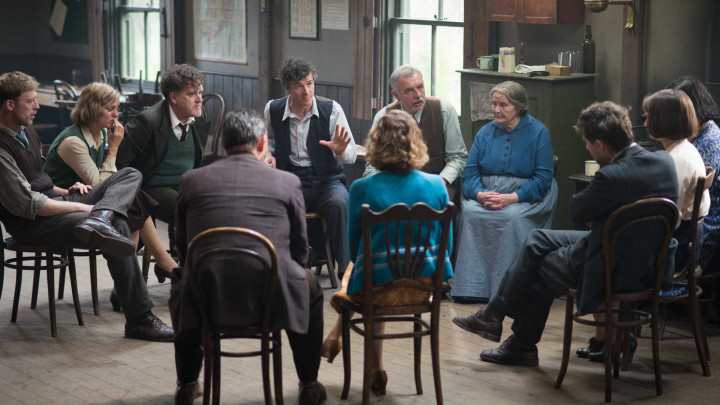
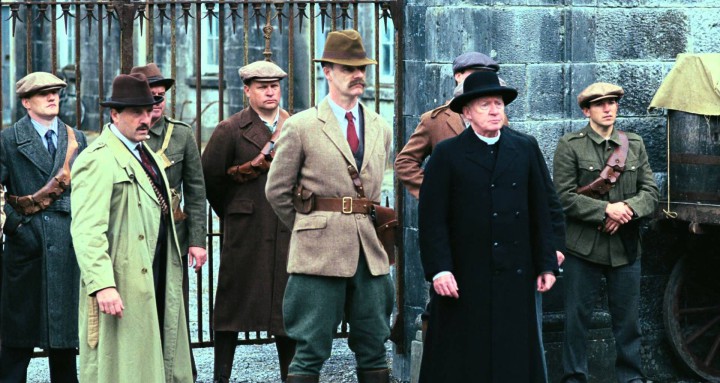
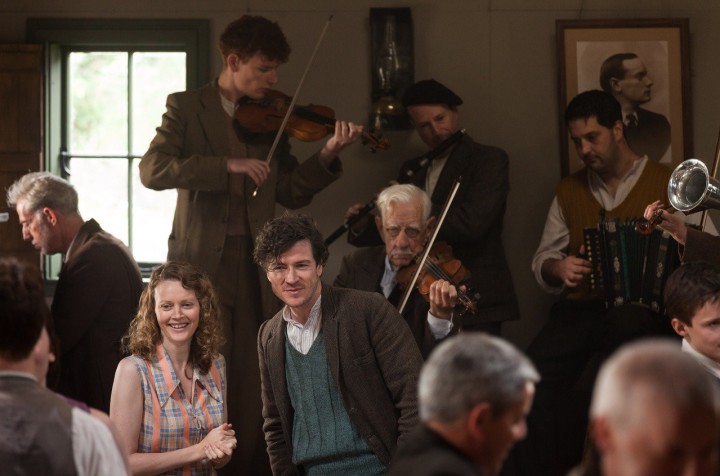
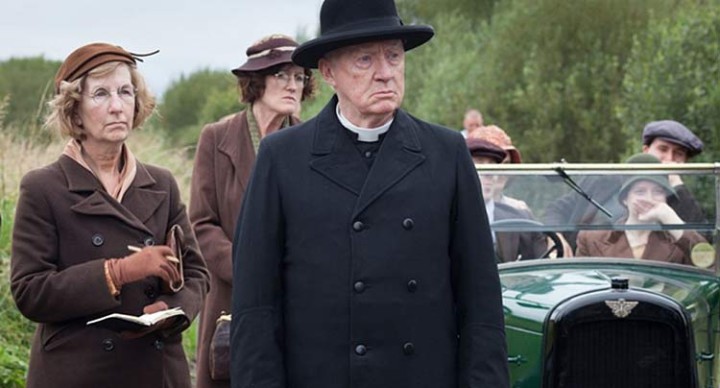
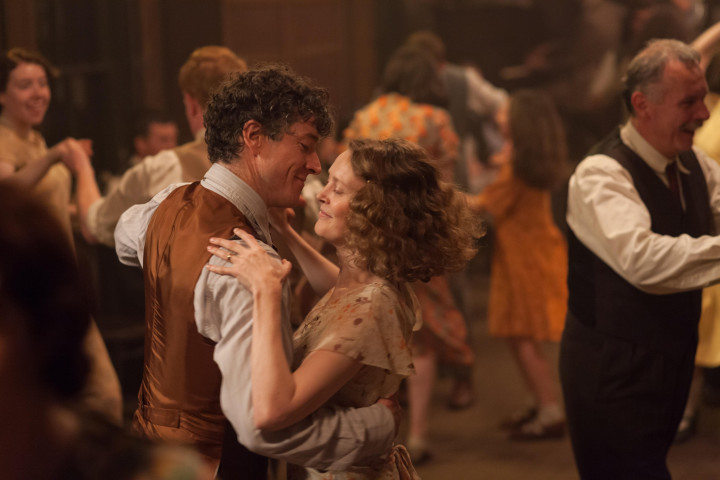
Before you comment
The comments section is here to provide a platform for civil dialogue on the issues we face together as a local community. Xpress is committed to offering this platform for all voices, but when the tone of the discussion gets nasty or strays off topic, we believe many people choose not to participate. Xpress editors are determined to moderate comments to ensure a constructive interchange is maintained. All comments judged not to be in keeping with the spirit of civil discourse will be removed and repeat violators will be banned. See here for our terms of service. Thank you for being part of this effort to promote respectful discussion.